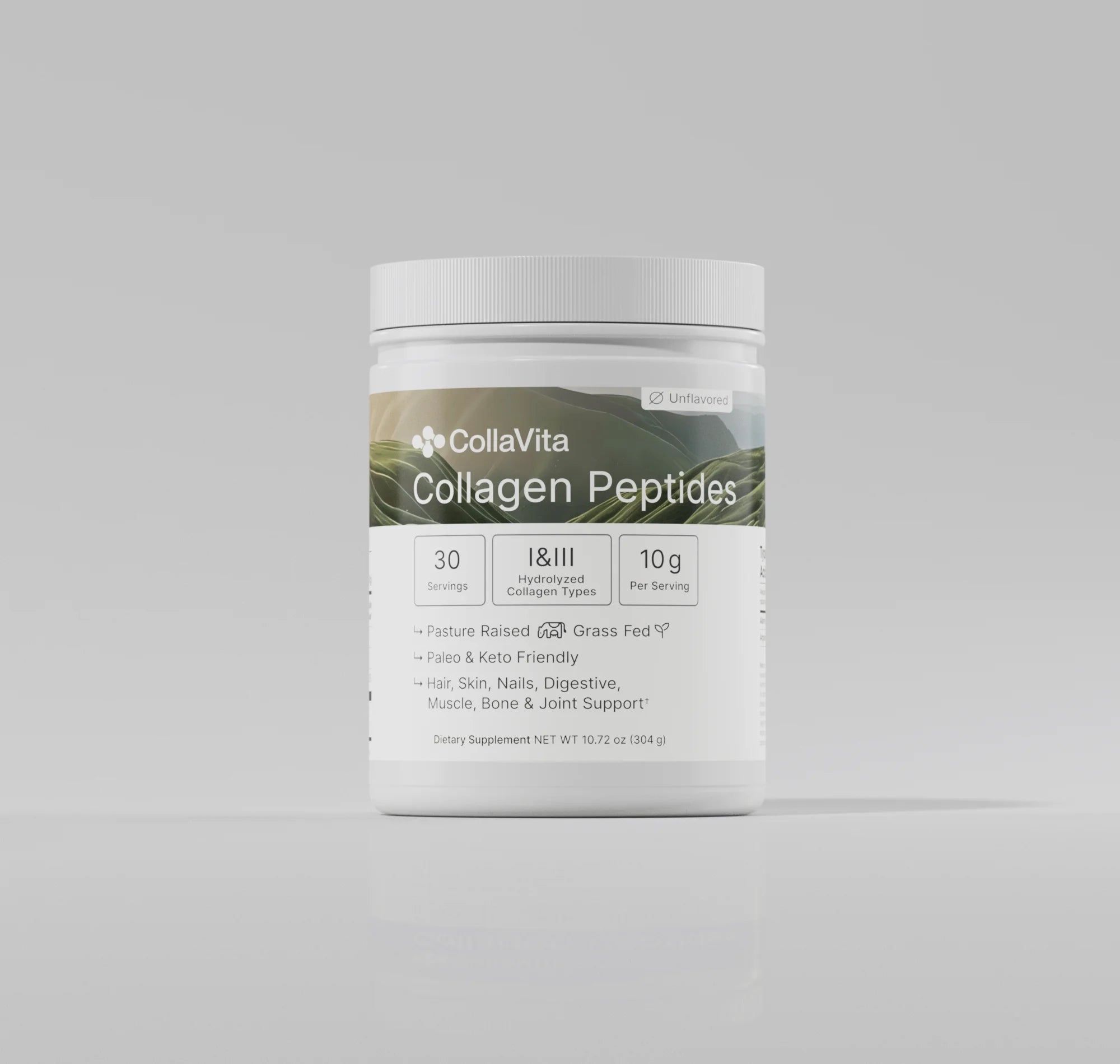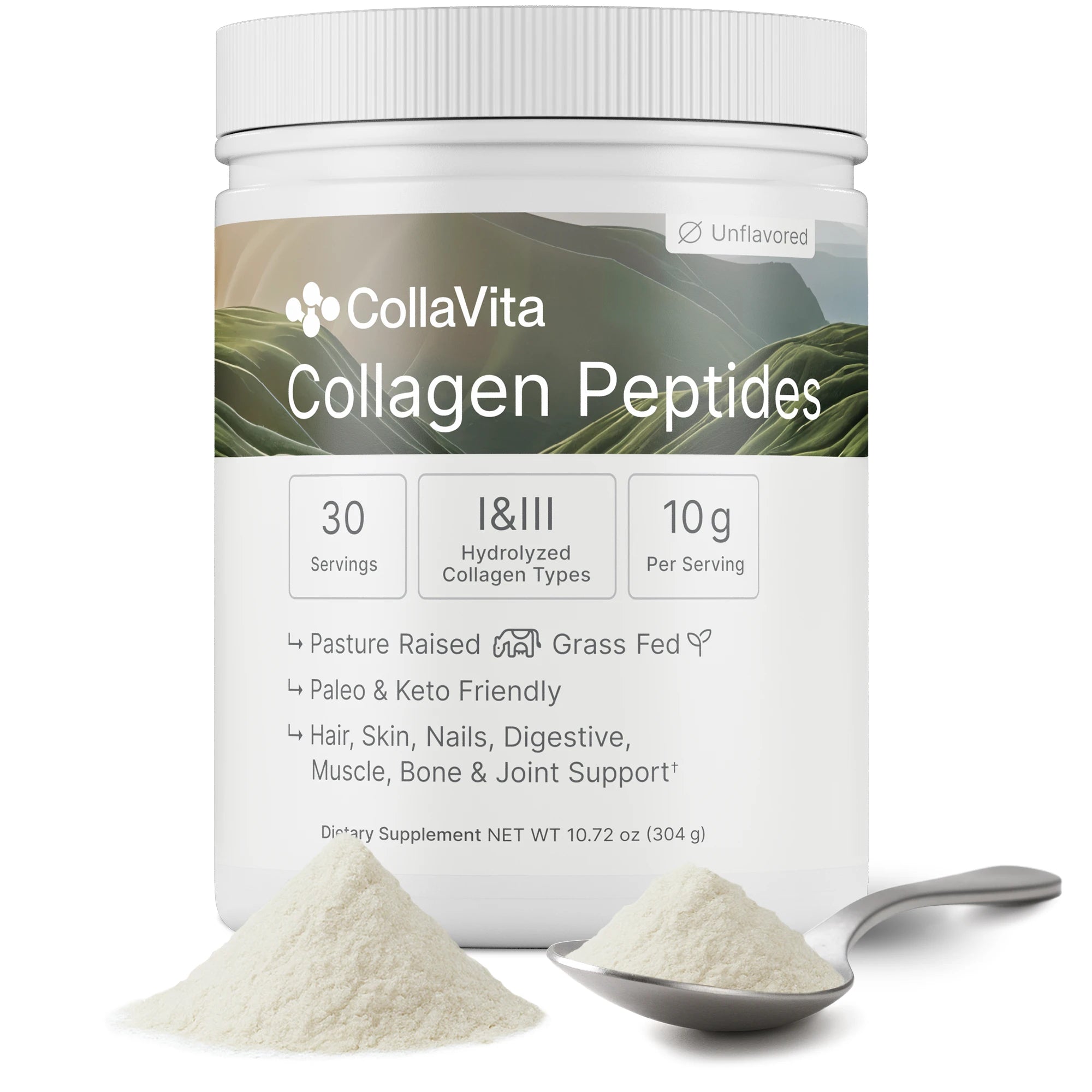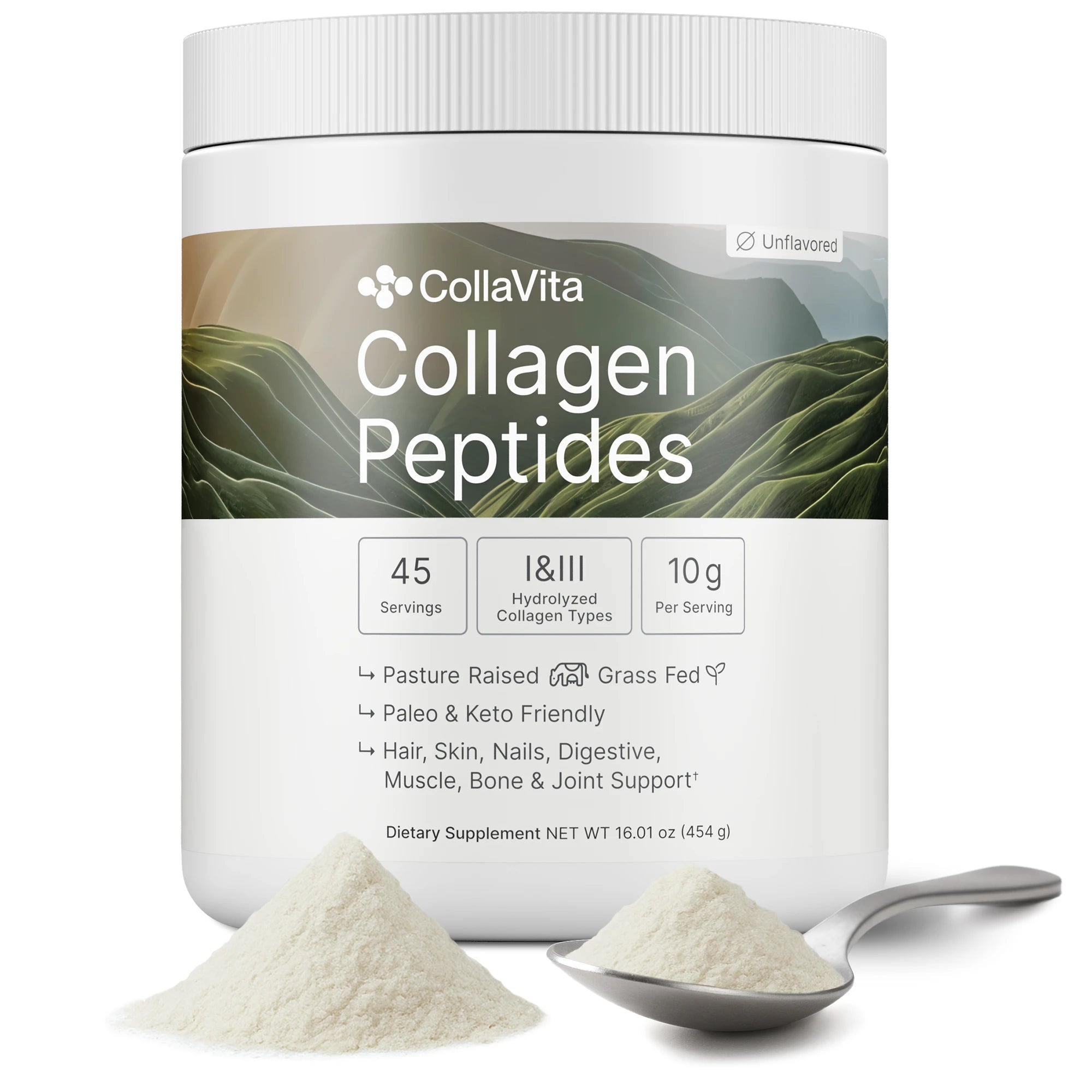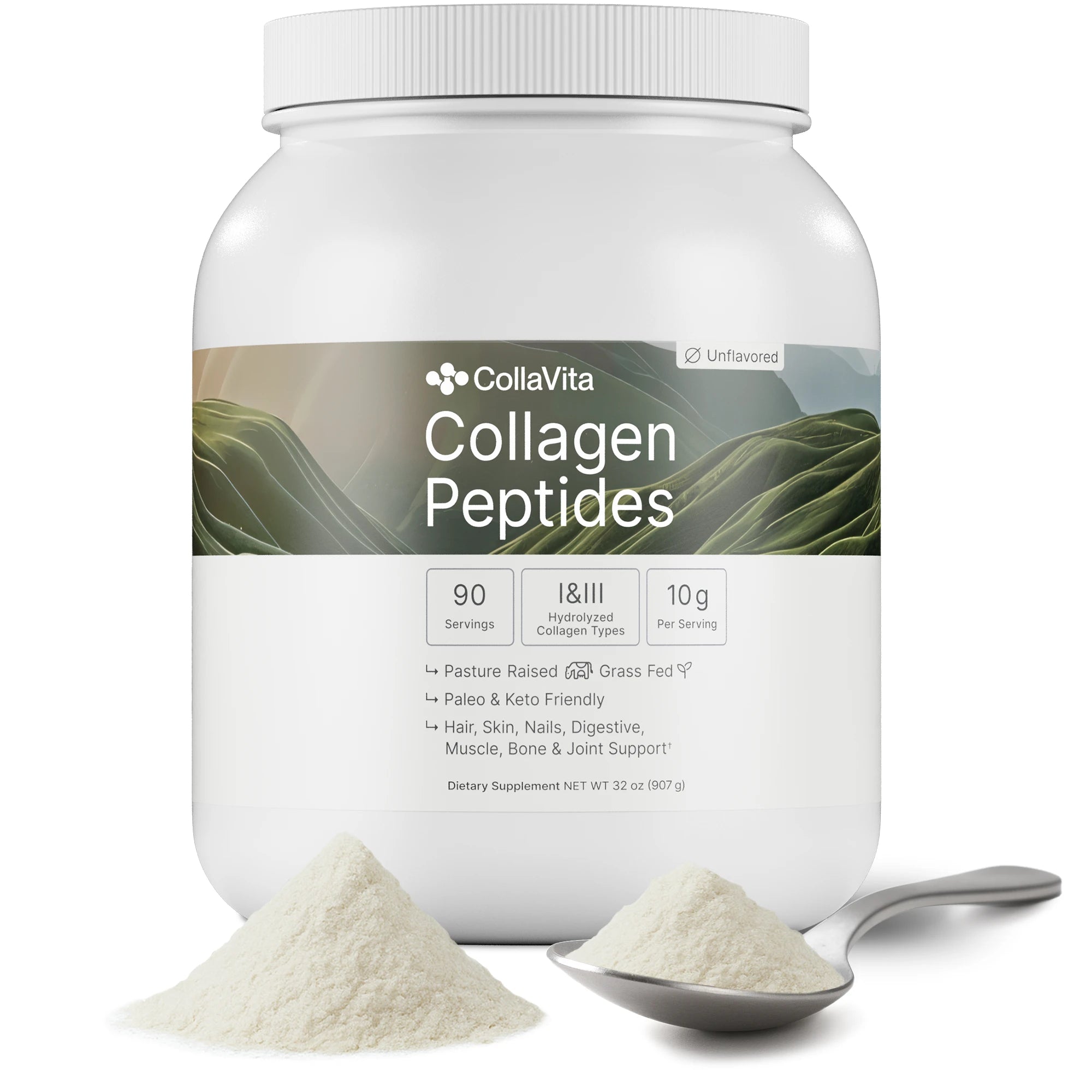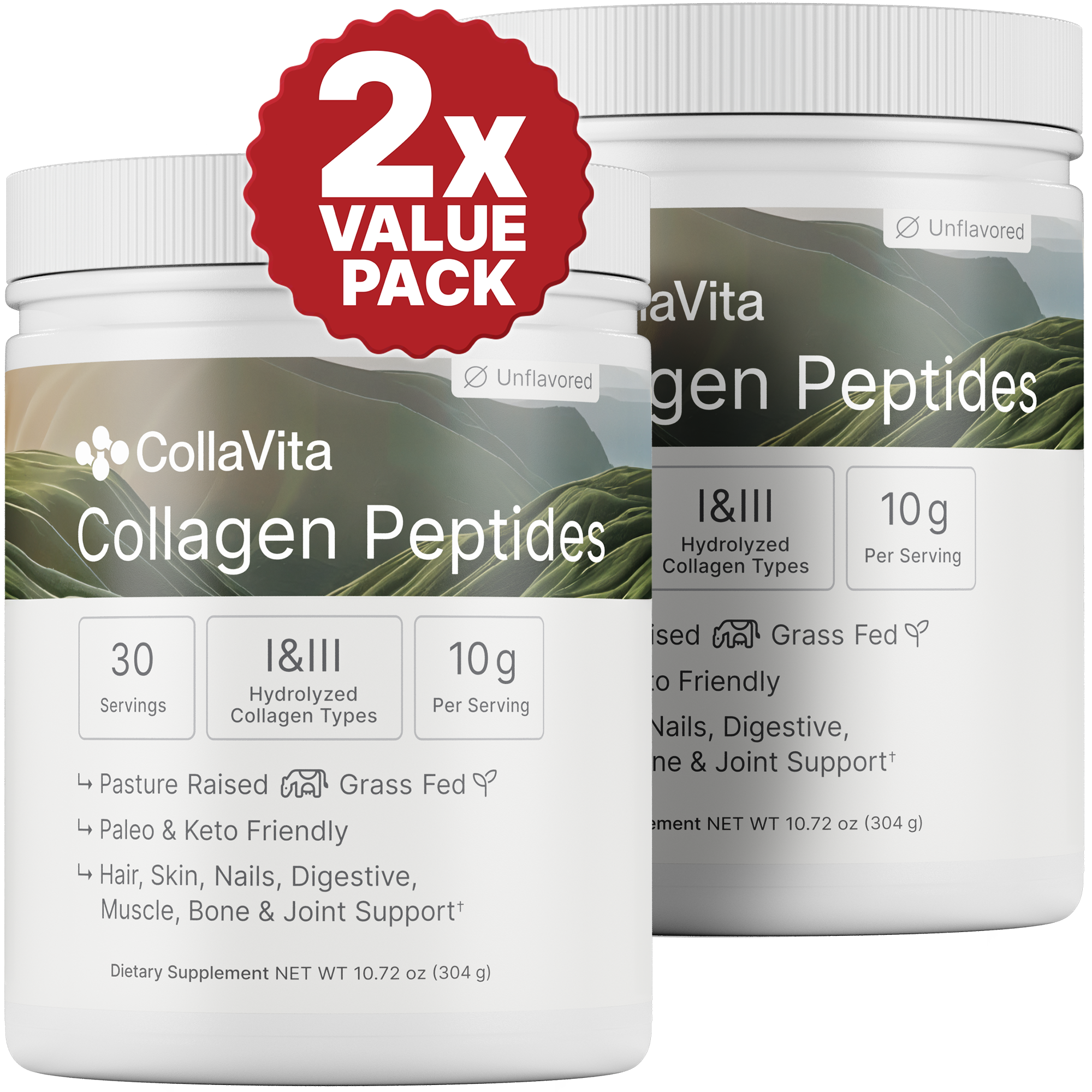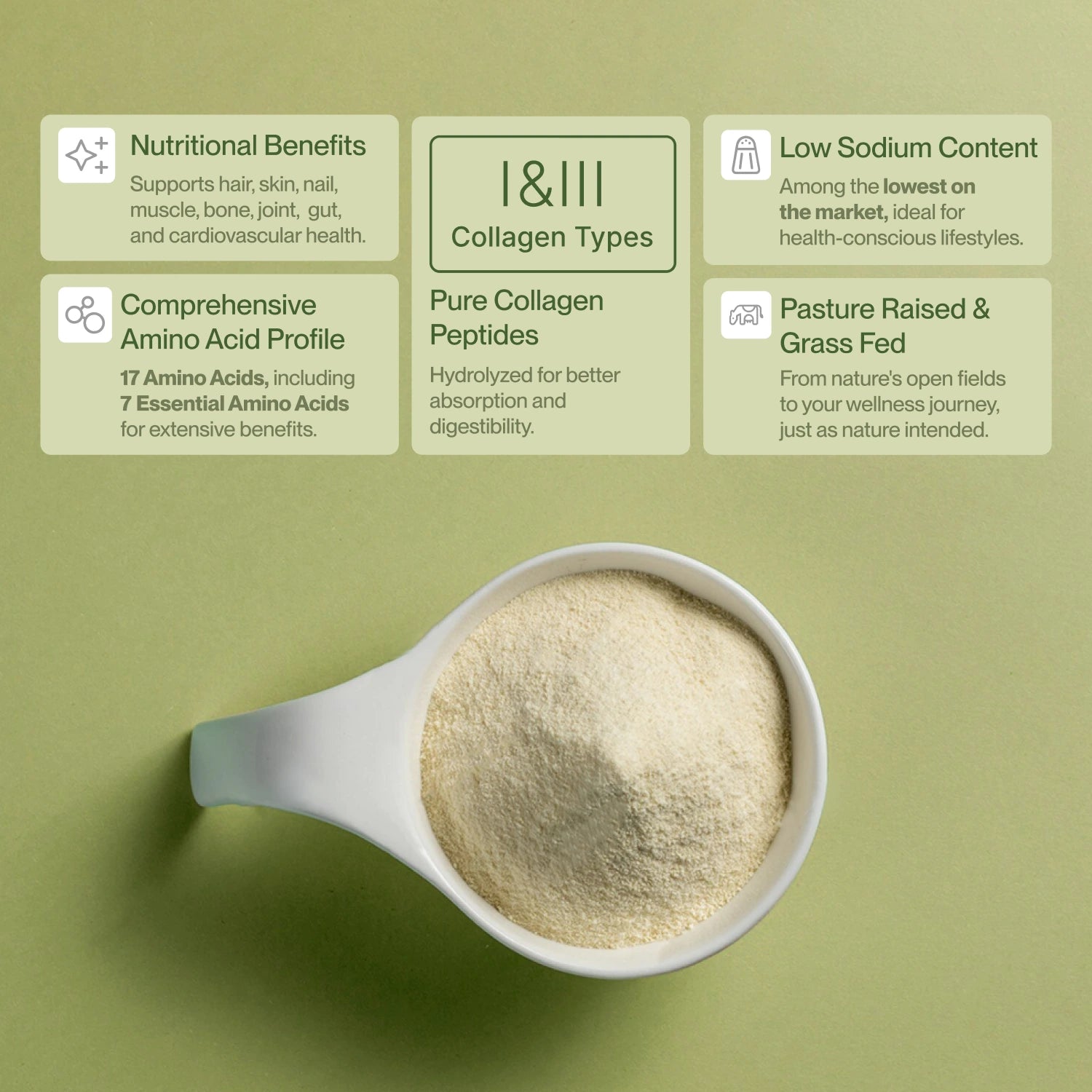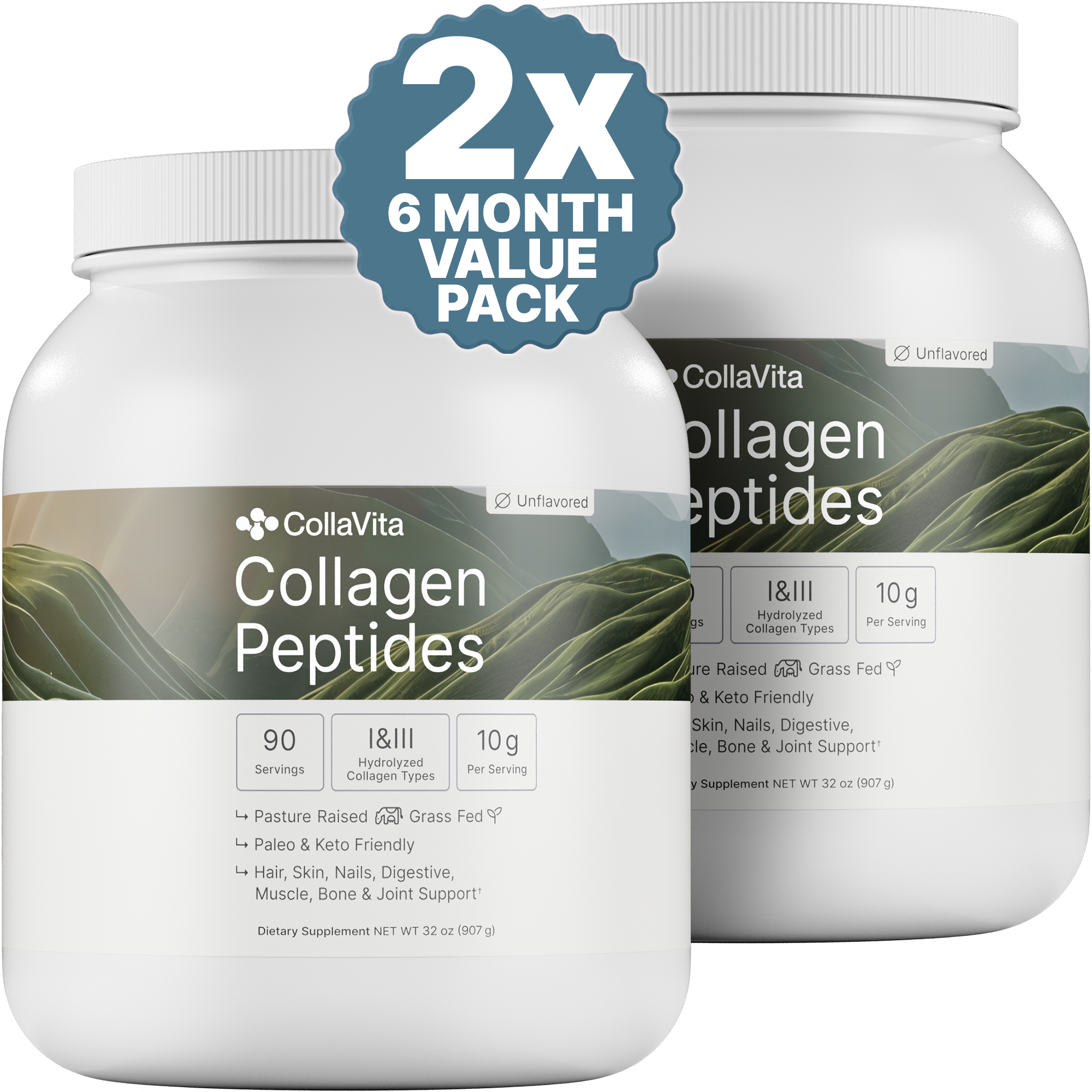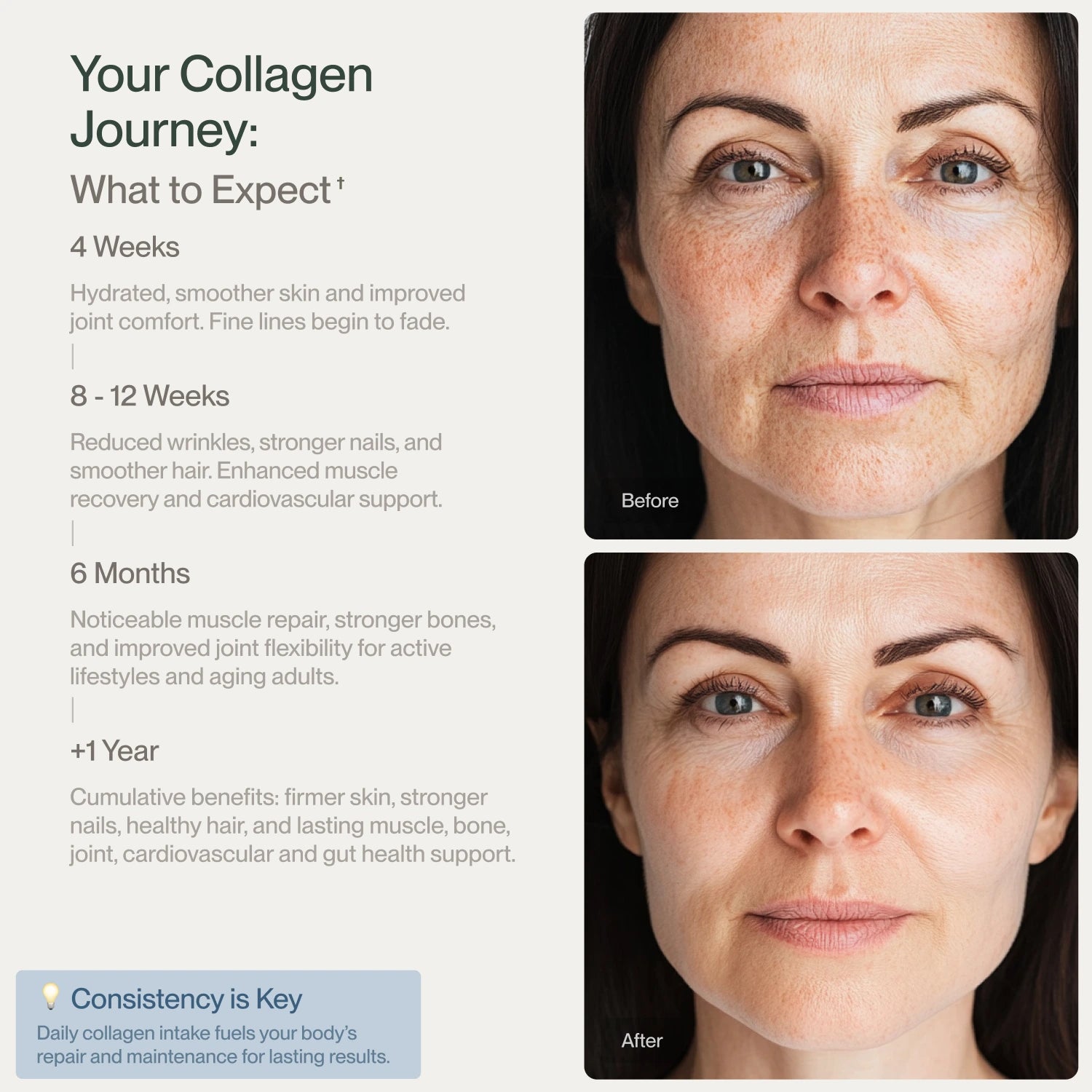Should Collagen Be Taken on an Empty Stomach or With Food?
- Empty Stomach Intake: Potentially better absorption, but may not be suitable for those with stomach sensitivities.
- With Food Intake: Can prevent stomach discomfort, but absorption rate might be slightly slower.
When to Take Your Collagen: Morning vs. Evening
Morning Collagen Intake
- Increased Absorption: Better absorption potential when taken on an empty stomach.
- Energy and Satiety: Some users report that morning collagen intake increases feelings of fullness throughout the day and contributes to energy levels.
- Routine Integration: Easily incorporated into daily routines, which encourages consistent intake.
Evening Collagen Intake
- Repair and Regeneration: Supports the body's natural repair processes during sleep.
- Skin Health: Can contribute to skin cell renewal, improving skin elasticity and hydration.
- Gut Health: Some individuals report that evening collagen intake has a soothing effect on the digestive system and supports gut health.
Morning vs. Evening Collagen Intake Comparison
| Feature | Morning Intake | Evening Intake |
| Absorption | Better absorption potential on an empty stomach | No direct advantage related to absorption |
| Benefits | Energy, satiety, consistent intake habit | Repair, regeneration, skin health, gut health |
| Routine | Easy integration with coffee/smoothie | Integration into bedtime routine |
| Goals | General health, energy levels | Skin renewal, tissue repair, |
When Should Collagen Be Taken for Specific Goals?
For Skin Health
For Joint Health and Muscle Recovery
If joint health and muscle recovery are targeted, the timing of collagen intake may become slightly more important. Taking collagen before or after exercise can help support muscle and joint repair, as it provides the necessary amino acids for the repair of connective tissues and muscles damaged during and after exercise. Post-exercise intake can also help accelerate the recovery process. Based on research published in International Journal of Sport Nutrition and Exercise Metabolism(2), collagen supplementation has been shown to improve joint function and support recovery in physically active adults.
- Before Exercise: To support joints and connective tissues during exercise.
- After Exercise: To accelerate muscle and joint repair and support recovery.
How Can Food Pairings Enhance Collagen Absorption?
To maximize collagen benefits, consider pairing it with certain foods. Vitamin C is crucial for collagen synthesis, so combining collagen with vitamin C-rich foods like oranges, strawberries, or bell peppers can enhance its effectiveness. Zinc also supports collagen production; thus, zinc-rich foods such as nuts, seeds, and whole grains can further boost collagen's benefits. These combinations can be easily integrated into your meals or beverages, optimizing your collagen intake for better skin, joints, and overall health.
How to Take Collagen Effectively and Safely?
For effective and safe collagen supplementation, adhere to a daily intake of 2.5g to 10g. This range has shown noticeable improvements in skin elasticity and joint health. It is crucial not to exceed 10 grams per day to avoid potential side effects like digestive discomfort. Consistent daily intake within these guidelines will help you fully harness the benefits of collagen supplements while ensuring your intake remains safe.
Which Form of Collagen Supplement is Right for You?
Collagen supplements come in various forms, including powders, pills, and liquids, each offering distinct advantages. Powders are highly versatile, easily mixed into drinks or food without altering taste, with hydrolyzed marine collagen powder being particularly noted for superior absorption due to smaller peptides. Pills offer convenience and precise dosing, though some may find swallowing multiple pills challenging. Liquid collagen provides a quick, easily digestible option, but may contain added flavors or preservatives. Your choice should align with personal preference, lifestyle, and health goals, with hydrolyzed marine collagen powder often recommended for maximum effectiveness.
FAQ
What are the main benefits of taking collagen supplements?
Collagen supplements offer a wide range of benefits, primarily focusing on improving the health and appearance of skin, hair, and nails, as well as supporting joint and gut health. For instance, regular collagen intake can lead to increased skin hydration and elasticity, reduced joint pain, stronger nails, and healthier hair. Some users also report improved energy levels and satiety, especially when taken in the morning. For more details on how collagen impacts your body, explore our article on 13 Health Benefits of Collagen.
What is the best time to take collagen for weight loss?
The best time for taking collagen for weight loss is before meals to promote satiety. Consistency is crucial for maximizing potential weight management benefits.
What is the best time to take collagen for joints?
The optimal time to take collagen for joint health is consistently each day. Regular intake supports joint and bone strength due to collagen's amino acid content.
What is the best time to take collagen for hair growth?
The best time to take collagen for hair growth is regularly throughout the day. Consistency supports strong hair due to high glycine and proline content required for keratin production.
What to avoid when taking collagen?
Avoid exceeding 10g of collagen per day and ensure a balanced diet to maximize benefits. Combining collagen with vitamin C can enhance its effects.
Is collagen a protein?
Yes, collagen is indeed a protein. It is composed of amino acids, primarily glycine, proline, and hydroxyproline, which are essential for building and repairing connective tissues throughout the body. When you consume collagen supplements, your body breaks down these proteins into their constituent amino acids, which are then used to synthesize new collagen or other proteins as needed.
Which form of collagen supplement is right for me?
Collagen supplements are available in various forms, including powders, pills, and liquids, each with unique advantages. Powders, especially hydrolyzed marine collagen powder, are highly versatile and easily mixed into drinks or food, offering superior absorption due to smaller peptides. Pills provide convenience and precise dosing, while liquid collagen offers a quick, easily digestible option. Your choice should align with your personal preferences, lifestyle, and health goals.
SOURCES
(1) - Pu SY, Huang YL, Pu CM, Kang YN, Hoang KD, Chen KH, Chen C. Effects of Oral Collagen for Skin Anti-Aging: A Systematic Review and Meta-Analysis. Nutrients. 2023 Apr 26;15(9):2080. doi: 10.3390/nu15092080. PMID: 37432180; PMCID: PMC10180699.
(2) - Kviatkovsky SA, Hickner RC, Cabre HE, Small SD, Ormsbee MJ. Collagen peptides supplementation improves function, pain, and physical and mental outcomes in active adults. J Int Soc Sports Nutr. 2023 Dec;20(1):2243252. doi: 10.1080/15502783.2023.2243252. PMID: 37551682; PMCID: PMC10411303.
Scientifically Reviewed by Omer (Matt) Sermet


